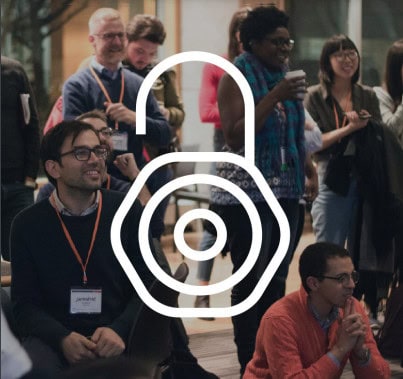During the week of Oct. 21–27, 2024, the University of Iowa Libraries is celebrating International Open Access Week by sharing updates and information about all things open access.
In the Libraries’ Scholarly Impact Department, we get a lot of questions from UI authors who are interested in publishing their research open access (OA), but don’t have funding available to pay for costly article processing charges (APCs). While the Libraries have several open access agreements in place to cover these costs for select publishers, they don’t cover everything. Without grant money or funds from your department, you can be on the hook for thousands of dollars to make your work open. It might seem at times like OA is out of reach.
But did you know that 73% of open access journals do not charge an APC? That’s right. Most OA journal titles are what we call diamond OA, meaning that they are free for the reader and free for the author. The cost of making the publication OA is absorbed by the publisher, usually a scholarly society or university department or library operating on a small or non-existent budget. You can see diamond OA articles published by UI authors in this collection from Iowa Research Online.
You may be thinking, “if diamond OA is so common, why have I never heard of it?” Scholars choose to publish in journals that will help bolster their reputations and careers. Promotion and tenure committees often look at propriety metrics such as impact factor to determine how a publication should be considered as part of a scholar’s portfolio. These metrics are created by and optimized for the same entities that publish the journals charging the high APCs. So, you can see how and why diamond OA journals struggle to compete.
Still, there are diamond OA journals that are widely read and perform well against standard metrics. If you are an author interested in exploring diamond OA titles to submit your work, try searching the Directory of Open Access Journals (DOAJ) for titles in your discipline. On the results screen, tick the box for “see journals without fees” to explore vetted diamond OA journals.

If you are an editor of a diamond OA journal, consider these steps to boost your journal’s visibility:
- Submit your journal for indexing in the DOAJ
- Make sure your journal is listed in all relevant disciplinary indices
- Use social media to promote articles
- Use common identifiers such as DOI, ISSN, etc.
To find out more about all types of OA, visit the Open Scholarship Toolkit, and reach out to us if you have questions.
The department will hold a panel discussion on Wednesday, Oct. 23 from 11 a.m.–noon. We will discuss diamond OA, as well as our publisher OA agreements, open data, open monographs, and the sharing of scholarship through repositories and personal websites (green OA). Click here to register and to find out more. We hope to see you there.
